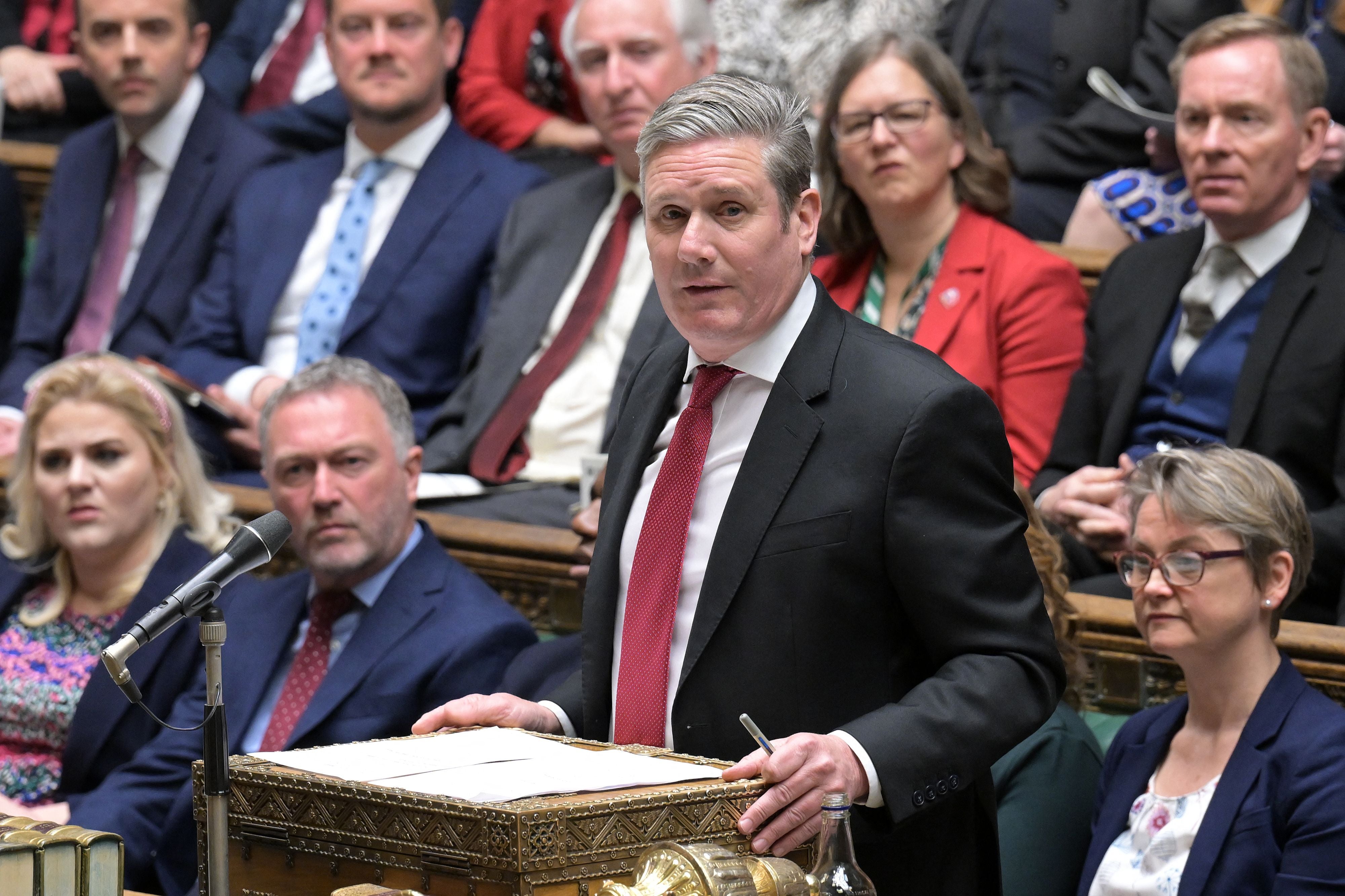It’s blue murder at the polls for the Tories – but is it enough for Starmer to kill off Rishi’s comeback hopes?
Things can change between now and the actual general election, of course, but the significance of these results is that for Rishi Sunak, they have to, writes John Rentoul


The local elections suggest that Labour is heading for government. The big benchmark set by Professor Sir John Curtice, the Craig Revel Horwood of British psephology, was that Labour needed a “double-digit lead” in the projected national share of the vote for Keir Starmer to be on course to become prime minister.
The early indications are that Labour will have an 11 percentage-point lead. It is not pointing towards a Blair-like landslide, but local election results tend to be less polarised. For every Plymouth (Labour gain) there is a Dudley (Conservative hold).
If Thursday’s results were reflected in a general election, Starmer would be prime minister of a minority government in a hung parliament, or possibly with a tiny majority.
Things can change between now and the actual general election, of course, but the significance of these results is that for Rishi Sunak, they have to. He has hardly even begun the task of recovery needed to stay in Downing Street.
He has stabilised the Conservative Party, but at a low level and with only 17 months to go to a general election in October next year – although on these results we should not rule out the latest possible date of January 2025, which would give him another three months in which to hope for something to turn up. One thing these elections will do is suppress talk about a May 2024 general election.
Indeed, there will almost certainly be another set of local elections before the general election. That means that these elections set a base level for the Tories, who must hope to do better in a year’s time. Sunak had hoped that this week could be presented as the first staging post of the Tory fightback, but no, he is still stuck in base camp.
He has to hope that he can make progress on NHS waiting lists and stopping the boats over the next year. It seems unlikely that the easing of inflation on its own will be enough to bring the voters back.
But things can change. Local elections are not necessarily a good guide to general election performance. The most dramatic example of a difference between the two was only six years ago, in 2017, when Labour was thrashed in the local elections in May – the Conservatives were 11 points ahead in projected national vote share – only for Theresa May to lose her Commons majority a month later, when Jeremy Corbyn closed the gap to 2.4 points in the general election.
That leaves Sunak facing the stiffer test of his character. He is helped by the air coming out of the Boris Johnson balloon over the past six months. When Sunak became prime minister, Johnson’s supporters were full of talk about giving Sunak until the local elections. If the Tories did badly, we were told, the party would at that point turn to Johnson to save it.
The Tories have done badly, but the idea that the party will now plead with Johnson to return seems absurd. The Times reports that Johnson’s supporters, including Priti Patel, Jacob Rees-Mogg and Nadine Dorries, are going to “hold a conference” in Bournemouth on 13 May. The Committee of Public Safety it is not.
Yet Sunak will find it hard to maintain the unusual discipline and unity that has reigned in the parliamentary Conservative Party since he entered No 10. The huge gains made by Liberal Democrats in the south in the local elections will scare a lot of Tory MPs who have been used to thinking of their seats as safe since the collapse of the Lib-Dem half of the coalition in 2015.
The trend towards the kind of anti-Tory tactical voting that exaggerated Tory losses in 1997 is well established. The only reason tactical voting won’t be as effective as it was in the Blair landslide is that the new parliamentary boundaries mean that voters tend to be less well aware of the tactical situation in their new seats.
One other thing to be said about Thursday’s elections is that there was not that much fuss about the new voter ID law. It is still a terrible idea, and unnecessary; there have been a few stories of people being upset at the polling station, mostly for having the wrong form of ID rather than being surprised to be asked for it at all.
But it does not seem to have provoked Middle England into a revolt against pointless officious bureaucracy. I am afraid that the law will be in effect for the next general election. I wonder if Labour will abolish it?






Join our commenting forum
Join thought-provoking conversations, follow other Independent readers and see their replies
Comments